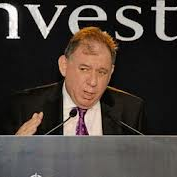Banner
Stephen Koseff conquers Investec’s sub-prime woes
“When you’re an entrepreneurial person things sometimes go wrong. Look at our underlying businesses: we have a lot of small, strategic operations that we can build on,” says Investec’s Koseff, who has pulled the banking group back from the sub-prime brink. Koseff has always learned from his mistakes & says one has to look through the everyday haze and scrutinise the underlying businesses. Read more…

ANT KATZ
Once the darling of SA banks, Investec, is beginning to see the light at the end of the tunnel after a hectic few years says CEO and founder Stephen Koseff. The company made an unfortunate move in 2007, investing a whopping R4.2-bil into the sub-prime mortgage market in the UK company Kensington. Investec has been scrambling to recover from the global crisis of the collapse of that market later in the same year.
The bank is jointly listed in SA and the UK and includes Australia among its major markets – hence its major advertising campaigns around cricket.
But Koseff told the media last week that Investec’s recent revival in its share price – which increased by over 5 percent in seven days last week, pushing the increase over the past year to 10.6 percent — was precipitated by an announcement that Investec might sell its mortgaging business, Kensington.
Over the past 20 years, Investec’s trajectory had followed a very predictable pattern. Then it made the untimely decision to buy into sub-prime mortgages, a single but substantial move which probably hit both its reputation and bottom line more than anything else in the company’s history.
Financial and reputational cost
Investec stock hit a giddy height of R104 in 2007, slid all the way back to R27 by 2009 before recovering to around R77 at the close of last week.
While it’s too early to gauge the full damage of the earlier buying spree because many of those business might be sold, and might even realise a good profit, it has cost Investec (and Koseff) hugely. That cost has been in financial performance and share price – but also in reputation. Koseff’s hard-earned Midas-touch reputation will be hard to rebuild.
| “Look at the banking crises in the UK — seven of the 10 big UK banks had to get a government bailout. We survived that crises without any help from anyone.” |
Be that as it may, the investment banking world moves fast and a revival certainly seems to be under way at Investec’s Sandton head office.
Australian errors
Ben Smith has been appointed head of investment banking in Australia after former head Christian Nicks quit. The half-year results to September for the Australian business show it posting a loss of R117m and some Australian businesses are being put up for sale.
Koseff remains up-beat about Investec’s businesses in Australia. “We plan to transform the Australian banking business into a boutique operation,” he said last week.
Investec bought Kensington, then a subprime mortgage lender, for £283m — about R4.2bn at the exchange rate then — for cash and shares. But, shortly after buying Kensington, the subprime crises hit, sparking global financial crises.
It became a case of crisis management: first, Investec had to inject additional funds into the business, then it had to change Kensington’s business model from subprime lending to the more mainstream mortgage origination, packaging and distributing.
Timing of purchase “unfortunate”
Stating the obvious, Koseff now says that the timing of the Kensington deal was “very unfortunate.” But nobody could have predicted that at the time. It has, since, recovered and was another business that Investec could develop and grow.
But Koseff seems to have no regrets about the UK acquisition and the effect it might have had on Investec’s share price. “We bought the franchise in the UK. We’ve been under pressure because the regions we are in have been through a tough time,” he says.
“Look at the banking crises in the UK — seven of the 10 big UK banks had to get a government bailout. We survived that crises without any help from anyone.”
I’m here to stay, says Koseff
Koseff says Investec has built a global presence. The share price will respond when conditions in its markets improve. “Look at our share price in a year’s time.”
Yet, for much of the past 20 years, Investec’s share price has under-performed main indices in London and on the JSE. From more than R60 on the JSE in 2010, it drifted down steadily until late 2012, when a recovery began, taking it to R73.81 now.
Quite whether Koseff, 62, will stick around for the recovery remains to be seen. He could retire at 65, which is Investec’s official retirement age, though it does not apply to the CEO.
But Koseff says he’s “not going anywhere. Clearly I can’t last forever, but I still have the energy to lead Investec.”